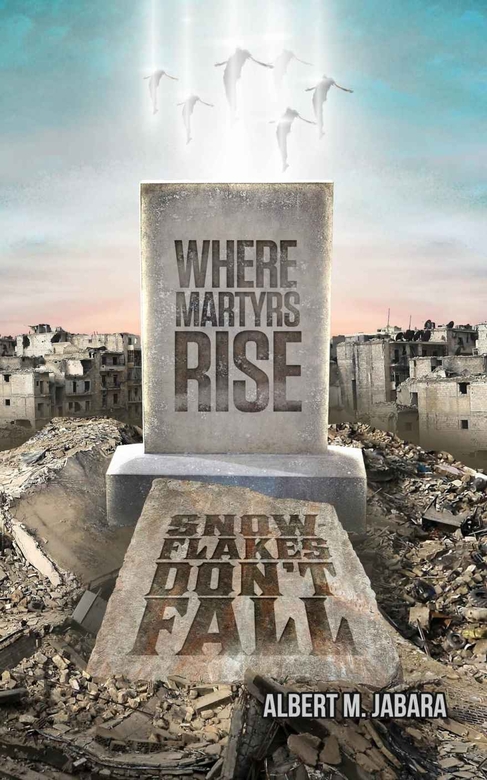
A fictional manifesto plumbing the lyrical depths of spirituality, the horrors of history, and the contradictions of human existence, Where Martyrs Rise Snowflakes Don’t Fall by Albert M. Jabara is a confident and belief-challenging read, offering an eye-opening blend of religious theory, philosophical narrative, poetic exploration, and historical analysis.
Yunus Nef’i is the main protagonist of this novel – a philosopher, scholar, poet, journalist, and author – who has spent his life fighting for the oppressed and overlooked, examining the faults of the world with his caustic and fearless pen. Some chapters read as a memoir, digging into Yunus’ experiences as a child in his Yemeni village, or his time living and crafting poetry in Canada, but others use the lens of his life as a vehicle for essays and historical revelations about the broader world.
Thematically, the text touches on a kaleidoscope of concepts, from the millennia-old struggle between Islam and Christianity to the rampant collusion of capitalist superpowers. Criticizing those who misinterpret the Qur’an, and who act against the believers of Islam, the book praises a small cadre of national and religious actors who the author sees as being aligned with the faith. Far from seeming to be aligned with one political spectrum, the book condemns much of recent history, such as the horrific murder of the journalist Jamal Khashoggi in the Saudi Consulate, or the alliance of Farsi-Iran with Iraq’s Shi’ites and the United States during the 2003 Iraq invasion.
Holding nothing back in its criticism of the US, this is a radical review of 21st-century geopolitics and the major players who have led the globe into chaos and spiritual malaise. Crafted as a clear-eyed indictment of the West, both in centuries past and over the last twenty years of the War on Terror, some readers might find the claims biased, or even offensive, but Jabara brings the receipts, so to speak, explicating corrupt practices that have already been heavily documented. Railing against the US, Russia, China, Israel, India, and more, this book may be perceived as controversial, but it is far from conspiratorial or conjectural.
From a technical perspective, metaphor occasionally blurs with fact and academic interpretation, creating a dream-like reading experience, but the early narrative can get lost in a tangential spree of creative license. The stretches of lucidity and clarity are beautifully penned, with linguistic patterns that artfully weave between prose and poetry, but other sections come off like unedited diatribes, offering less panache and polish. The meaning or intention behind certain words and passages can be nebulous, and the structure of the ideas could be improved, but the author is clearly aware of this, and embraces it early on: “Editors do not understand the natural sacredness of line-flow, and each Word must stay where it falls.” While this adherence to a vision is laudable, it can be difficult to follow the thread of ideas from one section to the next.
That said, this fiercely original work is a unique text in every sense, challenging students of history, poetry, religion, philosophy, and Middle Eastern culture with a heady but affecting mash-up of non-fiction and contemporary fiction.
Book Links
STAR RATING
Design
Content
Editing
Get an Editorial Review | Get Amazon Sales & Reviews | Get Edited | Get Beta Readers | Enter the SPR Book Awards | Other Marketing Services























Leave A Comment